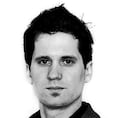The organisers of a new service hope it will help to curtail the high incidence of sudden cardiac death syndrome
IT’S SATURDAY morning in the Lee Valley Golf Club near Ovens in Co Cork. Sets of clubs are unloaded from car boots as several mostly middle-aged men go through some stretching exercises. Others stuff chocolate bars and bottles of sports drinks into their pockets and stride purposefully towards the first tee.
Inside the clubhouse, former healthcare worker Ed Donovan is setting up his stall and showing his medical staff of one nurse and a doctor to their respective rooms. Donovan has recently set up a mobile cardiac screening company called Heartaid, having spotted a gap in the market for targeted cardiac services.
The screening this morning is specifically aimed at those under 35, in an attempt to arrest the high incidence of early sudden death syndrome in Ireland. Recent research shows that sudden cardiac death (SCD) here is higher than in many EU countries, with 119 deaths occurring between 2005 and 2007. This gives an incidence of SCD in the 15-35 age bracket of 2.68 per 100,000, with males twice as likely to die as females. The researchers went on to note: “The incidence is higher than in other similar European studies performed in Iceland and in Sweden. The reason for this is unclear and requires further investigation.”
I volunteered to attend Heartaid’s first screening. My consultation began with a health check by the doctor (and Ed’s father) Dr Edmund Donovan who takes patients’ blood pressure, does a routine check-up and listens to their heart rate. He also compiles a questionnaire to check for genetic symptoms.
“A lot of cardiac problems occur during sporting events, or potentially occur, especially if people are pushing themselves,” he says.
“It can be due to metabolic things, or it could be an inherent heart disease no one picked up on. It is like the old story of the fella who was never at the doctor a day in his life, but he died suddenly. This is the reason prevention is better than cure.”
One of the reasons Lee Valley Golf Club is happy to host the screenings is that in recent years two heart-related fatalities have occurred on the course. A defibrillator has been installed recently and, weeks after it was put in place, the club captain was called upon to use it.
Golf director David Keohane takes up the story. “A few months ago we had a captain’s prize and on our 12th hole a member had a heart attack out on the course. We had only recently had a defibrillator installed and on the day there were only four people trained in how to use it. One of the people trained was the captain and he was the only person here who could use the apparatus. So they rushed him out to the course in a buggy to use the defibrillator on him. This saved his life, so said the paramedics and the doctor.”
Keohane says that many in the sporting field are now more aware of sudden death syndrome, given some recent high profile deaths in the Irish sports community. “We’ll always support something to do with heart and screening. It is so in the news at the moment, between GAA and basketball people dropping dead,” he says.
“Some are trying to associate it with sports drinks or nutrition supplements. I played a lot of sport and go to the gym, and I know that if you have a ticking time bomb inside you, for whatever reason, you need to know about it.”
Back in the waiting room several club members and locals are queuing up to be seen by the medical staff. One of those, William O’Brien, recently stopped playing competitive rugby, and has become a lot more conscious about his health since.
“I’d have a check-up every now and again but never anything like this. I am 30 years old now and I gave up rugby about six months ago. When you get to your late 20s and 30s, you start taking health a lot more seriously. The big thing is when you hear about sudden death and fellows around your age dropping dead: you realise that these things do happen.”
Donovan checks my body mass index, completes a personal and family history questionnaire, and then I’m passed to a nurse specialist for an electrocardiogram. The test itself takes about 10 minutes. During it, I’m connected to a recording device through a series of leads. This in turn records the electrical activity of my heart. It will be read off-site by a specialist and the results assessed.
All in all, the consultation and the examination takes about 30 minutes and costs € 80 per person. Five days after the screening, the results of the electrocardiogram arrive by post. They are normal.
The hope is that the service will be rolled out nationally in the coming weeks, visiting schools, clubhouses and sporting facilities. “In Italy, it is mandatory for anyone who plays competitive sports to have cardiac screenings based on the service we are offering,” says Ed Donovan.
“They have reduced the instance of sudden cardiac death by 89 per cent, so it is proven that it works. I saw there were certain issues for people getting screened in Ireland. One was accessibility and the other was cost. By bringing this service directly to people, at an affordable price, we are hoping to change that.”
For more details see heartaid.ie or tel: 1890-300333








